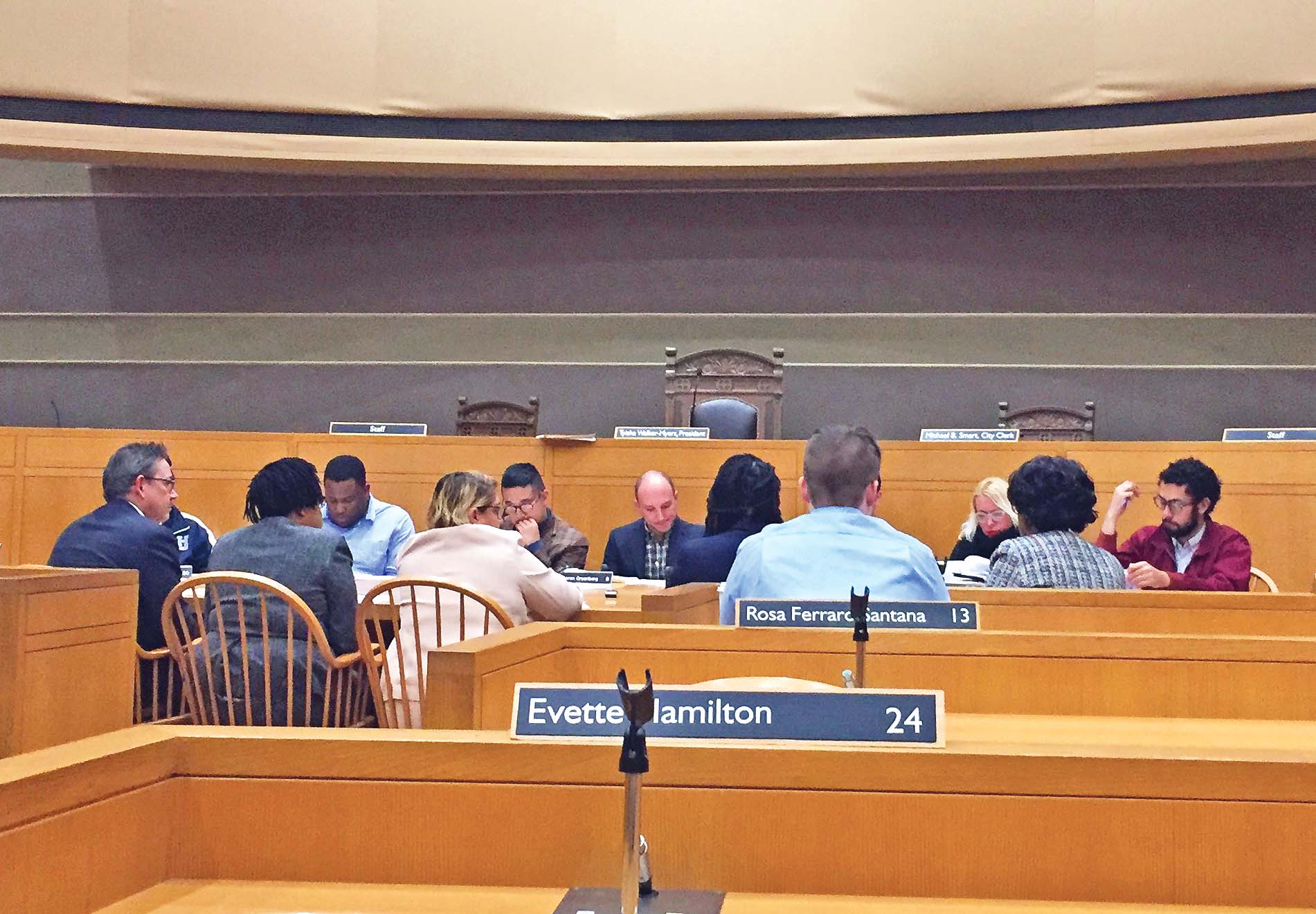
“I do everything for my kids.”
After living in Puerto Rico for 43 years, Adrian Colon was faced with the worst natural disaster in Puerto Rican history — Hurricane Maria. No light, no power, no communication. His wife lost her work as an elementary school teacher and all his plans came to a halt. After looking for a safe place to live in other cities in the United States, including New York, he found a community with safety and education. He found New Haven. But the Federal Emergency Management Association, the governmental agency responsible for natural disaster relief, is not extending funding for survivors of Hurricane Maria past March 20. After that deadline, Colon will have to find housing and a way to stay in the United States with his family — on his own.
On Tuesday night, the Board of Alders’ Education Committee held a public workshop on the welfare of recent student arrivals from Puerto Rico and other areas affected by natural disasters like Hurricane Maria. Several New Haven community members who recently arrived from Puerto Rico, as well as social workers and school district and state employees, testified on the needs of the displaced students and how the city is striving to meet them. William Clark, chief operating officer for New Haven Public Schools, praised Mayor Toni Harp and newly elected New Haven Public School Superintendent Carol Birks for stepping up to the plate immediately and welcoming the evacuees with “open arms.”
“It wasn’t what can’t we do, it was what can we do,” Clark said of Harp and Birks’ response to the hurricane.
The Education Committee voted to pen a letter to FEMA, urging the agency to extend funding for FEMA hotels. Many displaced Puerto Ricans who have come to New Haven live in these temporary hotels, which are due to close on March 20, leaving many families homeless.
Ward 14 Alder Kenneth Reveiz, vice chair of the committee, urged Elm City residents to get involved and continue to advocate for Puerto Rican evacuees. Ward 26 Alder Darryl Brackeen Jr. said that in the absence of sufficient federal assistance, it is all the more important for the state and local communities to step up.
“It takes a city, and this city stepped up to the plate,” said Brackeen at the conclusion of the testimony.
According to the Connecticut State Department of Education, Connecticut school districts have received 1,745 displaced students since late October 2017. Compared to other Connecticut cities, New Haven has received the fourth highest number of people, with a record high of 198 displaced students in the district as of Feb. 9.
The recently arrived students often have additional needs such as English language learner classes and special education, according to New Haven Public Schools Director of Choice and Enrollment Sherri Davis-Googe. New Haven schools have also faced difficulties accessing new students’ medical records and providing them with mental health services and material needs like school supplies and winter clothing.
In spite of the difficult position many recent arrivals find themselves in, those testifying emphasized that they hope to contribute to the New Haven economy and community.
“We are professionals,” said Fernando Fernandez, who was a business owner in Puerto Rico but had to evacuate to New Haven with his family. “We are looking to grow as professionals.”
The governor’s office has contributed $400,000 to New Haven support efforts for these new residents, and the federal government included $35 million nationwide for services to help students recover from traumatic events like natural disasters in its 2018 budget. Nonprofits like JUNTA for Progressive Action also provide services like English and GED classes for adults and after-school programs for kids. However, their resources are coming under strain due to the influx of evacuees, according to JUNTA Program Director for Advocacy and Community Engagement Paola Serrecchia.
Reveiz said the University should play its part in helping the Puerto Rican community and urged Yale to divest from Puerto Rico’s debt and to instead invest in the Puerto Rican diaspora.
The plight of Puerto Ricans after Hurricane Maria has resonated with many New Haven residents because of the scope and influence of the Puerto Rican demographic in the city.
Although Ward 5 Alder Dave Reyes is not a part of the Education Committee, he came to the meeting to support Puerto Rican immigrants. He shared his personal stake in the tragedy with the News, saying many members of his extended family remain stuck in Puerto Rico without power or adequate communication measures.
Ward 1 Alder Hacibey Catalbasoglu ’19 said the Puerto Rican demographic in New Haven is integral to the community.
“Growing up and going through the public-school system in New Haven, I had tons of Puerto Rican friends who I know were directly or indirectly affected by the hurricane,” Catalbasoglu said. “People in Puerto Rico know of New Haven, and I think it’s important for New Haven to take a leadership role in protecting its people but also protecting the relatives of its people over in Puerto Rico.”
About 500,000 Puerto Ricans are still without power.
Ashna Gupta | ashna.gupta@yale.edu
Nathalie Bussemaker | nathalie.bussemaker@yale.edu







